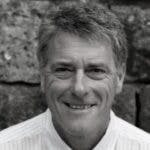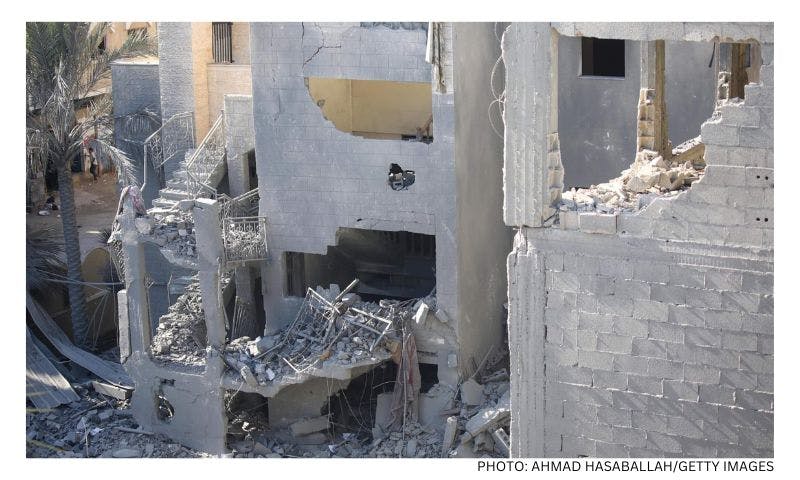Published: 15 August 2017
Last updated: 4 March 2024
Tony Nash will join his father Peter at the upcoming Sydney Jewish Writers Festival to discuss Peter's memoir about his escape from Nazi Germany and life in Shanghai during World War 2.
Although Tony Nash has built a successful books business, the reason he is speaking at the Sydney Jewish Writers Festival next week is because of the memoir his father Peter has written.
Tony Nash has never written a book, nor has he ever published one. So why would a writers festival be interested in what he has to say?
Well, firstly, he’ll be on stage with his father, Peter Nash, a first time author, aged 82.
Secondly, Tony Nash is the founder and chief executive of Booktopia - Australia’s largest online bookseller - with sales of 20,000 books a day, an annual turnover of $100 million, a workforce of 150, and a determination to continue its phenomenal growth even after arch-rival Amazon opens its first base in Australia.
He started Booktopia (along with his brother Simon, sister Elana Traurig and brother-in-law, Steve Traurig) in 2004 on a budget of $10 a day. It now operates from a massive headquarters and fully automated distribution centre on the edge of Sydney’s Olympic Park, capable of storing 700,000 books - with one sold every 7.9 seconds. In 2015 the company bought Angus & Robertson Bookworld, the iconic 130-year-old Australian publisher and bookseller.
At the upcoming Sydney Jewish Writers Festival, Peter Nash - a longtime volunteer guide at the Sydney Jewish Museum after a successful career in the textile industry (his speciality was dyeing) - will answer questions about his book, Escape From Berlin (where Peter was born in 1935, and is pictured above, with his mother, on a ship sailing to Shanghai), which he completed since the death of “my life partner” Rieke, his wife of 55 years - in 2015.
Then son Tony will answer questions about how people with great stories to tell can get them published.
[gallery columns="1" size="large" ids="12989"]
The first question someone should ask Tony is about the title. Yes, Peter’s book describes the plight of Germany’s 572,000 Jews once Hitler came to power in 1933, and chronicles the fate of those who stayed behind such as Peter Nash’s paternal grandfather, Leopold, who was living in Poland.
He refused to move, believing the madness would never cross the border. “An old tree can’t be replanted,” Nash’s grandmother, Cäcilie, wrote to her family who were begging them to escape.
His account of arriving in Sydney as a 13-year-old refugee with an American accent and an obscure backstory is also fascinating. Peter’s parents decided he would be less conspicuous with an Anglicised name than his birth name Nachemstein - which led to a humorous headline when he represented NSW as a “soccer” fullback in the 1950s and was described as the “One Aussie in the Cup Team” because none of his team mates had changed their own refugee names.
But the heart of the book is his richly detailed portrait of spending World War II in Shanghai under Hitler’s Axis allies, the imperial Japanese.
“Dad began writing a memoir for his family about 20 years ago,” Tony explains. “Yet It became clear to him that not many people knew how many Jews spent the war in Shanghai.
“Here was an opportunity to shine a spotlight on a forgotten part of World War II. Dad arrived in Shanghai when he was four and left when he was a teenager. So he was old enough to remember.”
[gallery columns="2" size="medium" ids="12991,13008"]
Then why not call it Escape to Shanghai? “We talked about that,” Tony Nash explains. “One thing I know about, having spent much of my career in search optimisation and how to maximise traffic on the internet, is how to promote books on the web.
Not that the younger Nash sees his father’s book as a best-seller, or even recouping the cost of publishing it. “It was never about how many copies we sell,” Tony continues. “But it will go into libraries and museums. In 2000 years, if someone wants to search for information about what life was like for the Jews in Shanghai in World War II, they can find it.”
Those who remember JG Ballard’s 1984 semi-autobiographical novel Empire of the Sun - and the 1987 Hollywood version directed by Steven Spielberg - will be familiar with the “coming of age” story of an Anglo-Saxon boy, born to a wealthy British family living in Shanghai, suddenly subjected to becoming a Japanese prisoner of war.
Peter Nash’s account graphically portrays the same city at the same time from a different boyhood perspective. This Shanghai is a sanctuary, albeit a cesspool.
“Shanghai was a godsend for up to 18,000 desperate European Jews at a time when most countries, including the US, Australia and many others, had severe border restrictions,” Peter Nash writes in his book.
[gallery size="large" columns="1" ids="12996"]
Japan had taken control of Shanghai in 1937, yet it remained “an Open Treaty Port”, which required no entry visas or permits. “There were beggars everywhere. Death was a constant presence and coolies (workers) pushed carts around the city every day picking up Chinese bodies.”
Most Jewish refugees settled on the north-eastern side of Shanghai, across the Soochow Creek in Hongkew in the International Settlement, which had been partially destroyed by bombardments during the 1937 conflict with Japan.
“New arrivals were issued with a blanket, bed sheets, a tin dish, a cup and a spoon and were soon lining up in a ‘soup kitchen’,” he continues. “Refugees often queued up wearing their good, heavy European clothing, the women still adorned in fashionable hats and gloves.”
Nash and his parents lived in a single room in a four-level terrace house, alongside other Jewish refugees, Chinese, Indians and “White” Russians.
“Our room measured about five by seven metres and contained two curtained-off beds, a sink, a stove, a table and a cupboard. My parents used large ice blocks in an esky-type container as refrigeration. To dry the washing there was one window out of which a long rod was suspended into the back lane.
“We shared an unsewered toilet and a bathtub with two other tenants and there was a constant bad smell. Every morning Chinese workers picked up the toilet slops. The tap water was undrinkable and had to be boiled and chemically treated. With high temperatures and humidity in summer I was bald, as my head was shaven clean to avoid infections from lice.
“Survival in Shanghai was endangered by poor diet, bad sanitation and low resistance to tropical diseases.”
And yet, compared with what was happening in the ghettos and concentration camps of Europe, Shanghai was a citadel of safety. Most of the Jews who took refuge there survived to outlive both Hitler and the Imperial Japanese.
Their descendants have since spread across the world (Peter Nash arrived in Australia in 1949), but Shanghai deserves to be more than a forgotten chapter of the diaspora.
Escape From Berlin: A refugee flees Anti-Semitism and the Holocaust of WW2 to Shanghai and then Australia, by Peter Nash (Impact Press, $29.99).
Peter and Tony Nash will take part in a Q&A session at Waverley Library, Bondi as part of the Sydney Jewish Writers Festival on Sunday August 27 at 4.30pm.
Main photo: Peter and his mother on the ship that took them out of Germany
Photos: All photos are reproduced with the assistance of the author





Comments
No comments on this article yet. Be the first to add your thoughts.